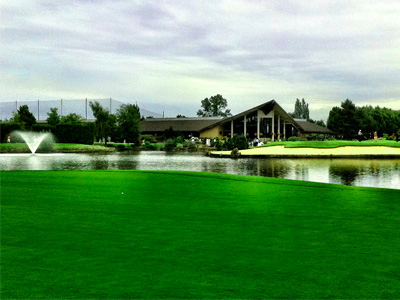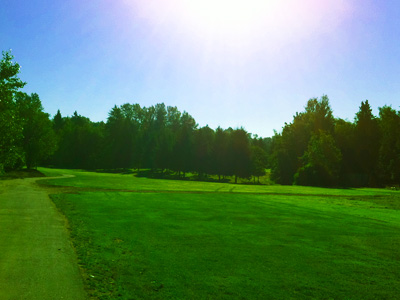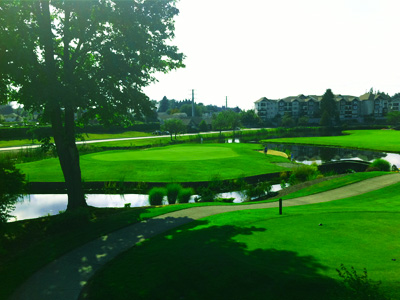Graham DeLaet knows firsthand what Tiger Woods is going through with his back injury, and by DeLaet’s telling, the next few months are likely to be rough ones for Woods.
In 2010, his rookie year on the PGA Tour, DeLaet was suffering from shooting pains on his right side. The pains came at irregular intervals. As they worsened, DeLaet made the decision to undergo microdiscectomy to treat a pinched nerve, the exact surgery that has forced Woods to miss this year’s Masters.
“When the pain was at its worst,” he said this week at the Shell Houston Open, “golf was the last thing on my mind. I just wanted to live a regular life. I wanted to be able to play catch with my kids.”
Each surgery is different, and each recovery period is different, but DeLaet’s timetable for recovery could prove a cautionary one for Woods. DeLaet’s initial rehab was simply walking around the block; he didn’t begin chipping and putting for three months after the surgery, and didn’t play in a tournament for six months, in mid-2011.
Even then, he said, he rushed back into competition too early, and decided to take the rest of the season off. When he returned for 2012, he conceded that he never felt completely in the groove. Most troubling is DeLaet’s line about his future prospects: “I’m not sure I’ll ever be 100 percent again.”
Woods, meanwhile, has said he plans to return to competition this summer. Whether that means The Players Championship in May, the PGA Championship in August, or somewhere in between, is between Woods and his medical teams.
With that in mind, then, it’s worth reading this column from Deadspin’s Drew Magary (NSFW language), in which Magary documents his recovery from three similar surgeries. Granted, Magary is not a professional athlete, and likely does not have access to the same extent of medical care and rehab that the moneymaking machine of Woods does. Still, Magary took issue with this characterization of the surgery from Woods’ website: “There should be no long-lasting effects from the surgery, and it should not impact the longevity of his career.”
“Even though this is an outpatient procedure (I went home the day of all three of my procedures) and most people are up and moving immediately afterward, there are very obvious long-lasting effects,” Magary writes. “In a microdiscectomy, doctors remove a portion of the disc that’s pressing against the nerve and causing pain, numbness, and discomfort. Once that piece of the disc is gone, the space between the vertebrae shrinks a bit and you are left with less cushioning than before. That’s permanent. Long lasting, you might say.”
We won’t know the severity of Woods’ injury until he gets back onto a course, whether in a few weeks or a few months. But these two accounts seem to suggest it won’t be nearly as open-and-shut a procedure as Woods and his team would like us, and perhaps themselves, to believe.
____
 Jay Busbee is a writer for Yahoo Sports. Have a tip? Email him at jay.busbee@yahoo.com or follow him on Twitter.
Jay Busbee is a writer for Yahoo Sports. Have a tip? Email him at jay.busbee@yahoo.com or follow him on Twitter.
Follow @jaybusbee
Devil Ball Golf – Golf – Yahoo Sports
Other Related Posts:
You have to give Tiger Woods a lot of credit: The guy sure knows how to st...
Welcome to Teeing Off, where Devil Ball editor Shane Bacon and national col...
The second major of the year is just around the corner, and with that comes...
Tiger Woods has been sidelined by injury for well over a month now, and to ...
When Tiger Woods announced last week that he would play in this week's Mast...
















